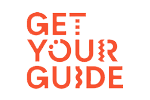Travel Tips
India is one of the oldest civilizations with a rich cultural heritage. It covers an area of 32,87,263 sq. km, extending from the eternal snows of the Great Himalayas in the North to the cultivated peninsula of far South, from the deserts of the West to the humid deltas of the East, from the dry heat and cold of the Central Plateau to the cool forest foothills. It measures about 3,214 km from North to South and about 2,933 km from East to West. It has a land frontier of about 15,200 km. The total length of its coastline including its group of islands viz Lakshadweep and Andaman & Nicobar Islands is 7,516.6 km.
Here, we have collected some of the information for you, before travelling in India.
RELIGION
Hinduism is the main religion constituting 80.5% followed by Islam with a population of 13.4%. The Christians constitute 2.3 while others viz Buddhists, Jains, Sikhs, Parsis etc constitute 3.8% . The country is the birthplace of four major religions viz Hinduism, Buddhism, Jainism and Sikhism.
CLIMATE and WEATHER
India is home to an extraordinary variety of climatic regions ranging from the deserts in the west, alpine tundra glaciers in the north and humid tropical supporting rain forests in the southwest and eastern India. It is largely subjected to four seasons: winter (January and February), summer (March to May), monsoon (rainy) (June to September), and a post-monsoon period (October to December). Generally, the best time to visit India is during the winters, when the weather in most places is relatively cool and pleasant.
SIM CARDS FOR YOUR PHONE
Can be arranged for you by our staff at a nominal cost, let us know a day in advance. We will need your passport copy and a recent photograph to arrange the same for you.
PHONE CALLS
Phone calls from hotels are expensive and should be avoided unless urgent. International sim cards usage also attracts very high roaming charges, keep in mind when making calls. Phone booths are available in most of the cities in India and you could tell our drivers to find them for you. Alternatively, we could always arrange local SIM cards for you at a nominal cost.
INTERNET / WIFI
Internet and wifi costs are usually very high in hotels. If possible Cyber cafes could be used for internet access or we could also arrange for data cards at nominal costs. We would need a day's notice to arrange the same.
CURRENCY EXCHANGE
Indian Rupee (INR) is the currency. Major currencies can be changed at banks, and authorised bureaux de changes as well as at Hotels, though hotels do not give out very good rates. No matter what time you arrive in India there will be an exchange office open at the airport though the rate given is not so attractive. If you want we could also arrange for foreign exchange from authorised currency exchange at good rates if the amount to be exchanged is above $500. It is illegal and dangerous to exchange money through means other than mentioned above. It is advisable to refuse torn notes. ATMs are generally available in all the major cities and towns.
CREDIT CARDS
Major credit cards are generally accepted by large establishments, including hotels, shops and airlines. Hotels may refuse to accept credit cards at certain destinations. It is best to pre-check.
ATMS & CASH MACHINES
ATM'S and cash machines are easily available in big cities in India but not in villages & small towns.
WHAT TO EAT AND DRINK
A dodgy stomach is pretty common for first-timers in India. That doesn't mean you should rule out street food, but try to stick to peeled fresh fruit and foods that have been either boiled or fried. Stay on the bottled water and avoid salads or ice.
Don't be too precious about your personal space
This isn't really a popular concept in India. You will be squished on public transport and squashed in lifts. People will ask seemingly intrusive personal questions that you may find intimidating. Remember that this is a wholly different culture and the questions are merely indicative of the locals' polite interest in you.
PHOTOGRAPHY
There are no such restrictions on taking pictures; however, it is always suggested to check with your guide. Camera / Video Camera charges are applicable in most of the monuments. You may please purchase the ticket separately, as it will not be included in the entrance ticket to the monument. There are restrictions on use of tripods in certain national monuments such as Qutab Minar in Delhi.
POLICE
Police can be reached by dialing 100 from any city in India
EMBASSIES
List of all foreign embassies with their contact details and addresses are available at the following link http://india.gov.in/overseas/embassy_detail.php
HANDLING BEGGARS
Please do not encourage beggars. In case you have a guide or a representative, take their help to keep them away.
WOMEN TRAVELLERS IN INDIA
India is a very warm and hospitable country. Though modern in almost all aspects, India still remains traditional in some parts. It is not always safe for women to travel alone. Don't wear clothes that are too revealing or provocative. Refrain from any such physical activity that is intimate.
SECURITY OF PERSONAL BELONGINGS
Don't move out wearing expensive things. Keep all the necessary items with you. Don't carry too much of cash. Try to carry only the important documents with you and if need be stitch a pocket inside your outfit to keep important documents like passport, credit cards, travelers cheques, etc. Avoid unnecessary items like too much of eatables, bulky clothing, heavy items, etc.





